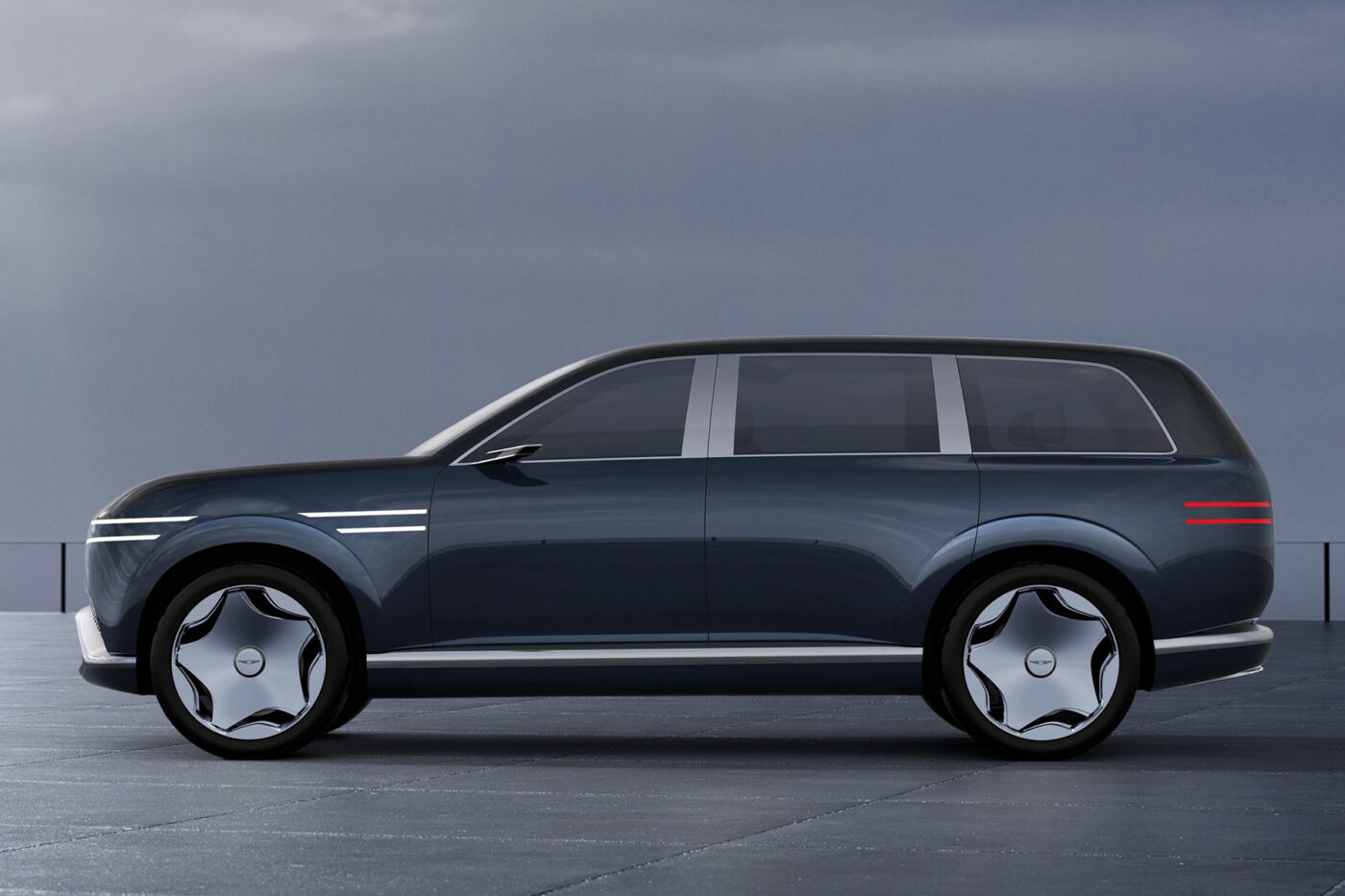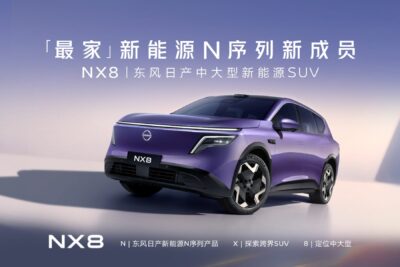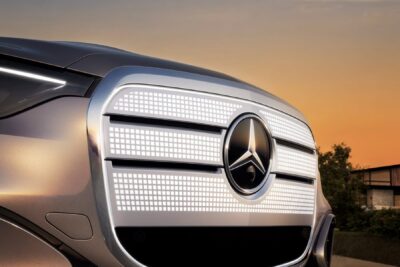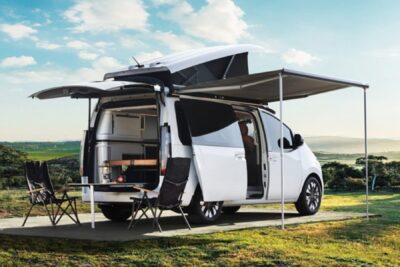Genesis likely to launch electric flagship GV90 in June 2026
In addition to the battery-electric GV90, the product push will include hybrids (HEV) and a model featuring a range extender (EREV). This appears to confirm the strategy shift reported last year: unlike the original plan announced in 2021 – which envisioned all new Genesis models being fully electric from 2025 onwards and the last combustion-engine vehicle being phased out by 2030 – the Korean brand now seems set to rely on a broader mix of powertrains for longer.
The GV90 is expected to be the most important new model over the next two years. The fully electric luxury SUV is seen as the brand’s new flagship and is intended to compete with vehicles like the SUV version of the Mercedes EQS and the Cadillac Lyriq.
The GV90 will be based on the new eM platform, a modernised version of Hyundai’s existing E-GMP architecture. The updated platform is designed to deliver improved range and charging speeds and will support advanced driver assistance systems and Level 3 automated driving. Initial indications suggest a comprehensive suite of high-end features, including air suspension, rear-axle steering, and large-diameter wheels. A powerful dual-motor drivetrain is expected, reinforcing the GV90’s positioning in the premium segment.
GV90 to face in-house competition
The Hyundai Motor Group already has a large electric SUV on the market in the form of the Kia EV9, and the Hyundai also presented the Ioniq 9 as the mainstream brand’s equivalent. Both models are based on the current E-GMP platform.
While the final design of the GV90 has yet to be revealed, it is said to draw heavily from the 5.25-metre-long Genesis Neolun concept (see image above). In addition, several heavily camouflaged GV90 prototypes have been spotted testing at the Nürburgring. Production will take place at Hyundai’s dedicated EV plant in Ulsan, South Korea, with a market launch scheduled for June 2026.
Multiple hybrid models in the pipeline
Alongside the GV90, Genesis places increased emphasis on hybrid technology. According to the reports, a hybrid variant of the GV80 is set to arrive in Q3 2026. This large SUV will reportedly feature a 2.5-litre hybrid drivetrain and is aimed at buyers seeking a middle ground between conventional combustion engines and full electric mobility. Two further models will follow in Q4: a hybrid version of the G80 saloon – which is already available as a pure electric model – and a GV70 with EREV technology.
The GV70 has also long been offered as a fully electric vehicle. The EREV version is especially strategic, as it enables Genesis to offer a solution tailored to markets such as North America and China, where EV charging infrastructure is still not fully developed. The EREV setup combines a smaller battery with a combustion engine generator that produces electricity for the electric motor when needed – a compromise aimed at reducing costs and alleviating range anxiety. In addition, a HEV version of the GV70 is also planned.
This wide-ranging product strategy aligns with Hyundai’s overarching group strategy, which is focused on improving profitability and expanding technological diversity. The Group is forecasting more than 1.3 million hybrid sales by 2028, with EREV technology viewed as a particularly promising bridging solution between combustion and fully electric powertrains.
With this approach, Genesis is responding to global market trends that currently favour ‘technology openness’ rather than committing exclusively to battery-electric vehicles. The combination of BEV, HEV and EREV will allow the brand to cater to varied customer needs while also taking into account regional infrastructure and regulatory environments.
etnews.com (in Korean), thekoreancarblog.com





1 Comment